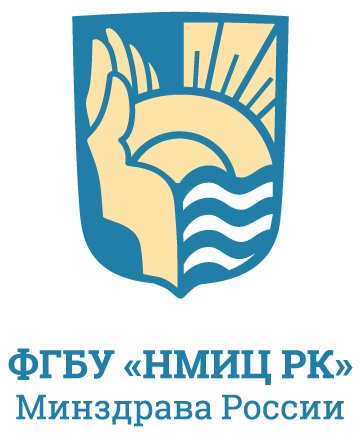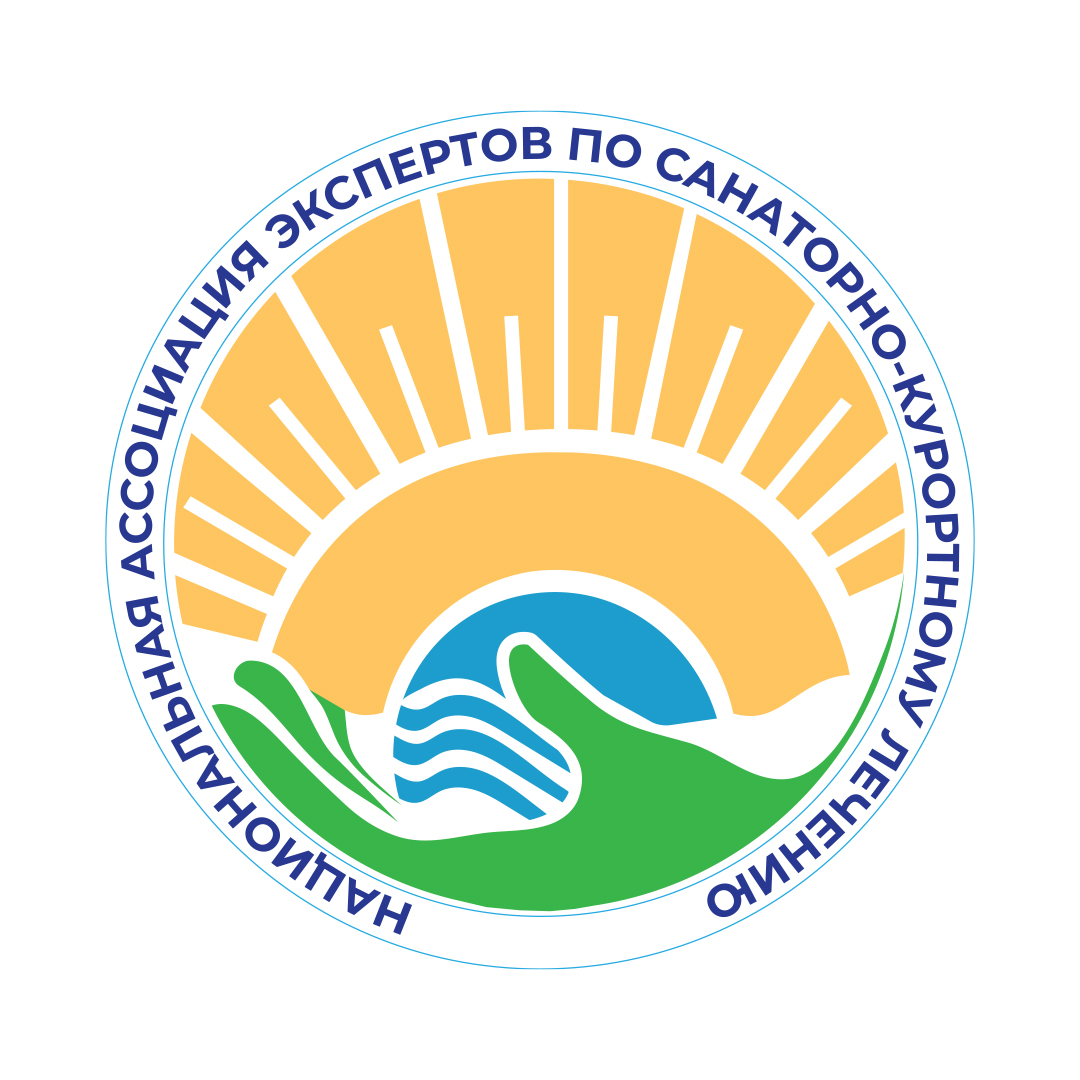Issue 3-21, 2022
Review article
New Assessment of Overall Tolerance in the Rehabilitation of Patients in the Early Recovery Period of Ischemic Stroke
2 ![]() Alexey A. Vershinin, 1,2
Alexey A. Vershinin, 1,2 ![]() Irina A. Belyaeva, 1
Irina A. Belyaeva, 1 ![]() Mikhail Yu. Martynov, 2
Mikhail Yu. Martynov, 2 ![]() Yana G. Pekhova, 2
Yana G. Pekhova, 2 ![]() Andrey P. Rachin, 2
Andrey P. Rachin, 2 ![]() Anatoliy D. Fesyun, 1
Anatoliy D. Fesyun, 1 ![]() Eugeniy I. Gusev
Eugeniy I. Gusev
1 Pirogov Russian National Research Medical University, Moscow, Russian Federation
2 National Medical Research Center of Rehabilitation and Balneology, Moscow, Russian Federation
ABSTRACT
Aim. To study the dynamics of overall tolerance in patients in the early recovery period of ischemic stroke (IS) with mild and moderatelysevere paresis, to evaluate the effect of aerobic training in this group of patients on exercise tolerance during inpatient treatment asof Compulsory Medical Insurance (CMI).Material and methods. The first group of 30 patients were examined (17 women, 13 men, the average age – 60,6±6,45 years old)during the 4-6 week of IS. Total points of the FIM scale were 118±5,2 /121,8±4,5. The second group- control group consisted of 30patients with chronic cerebral ischemia (CCI). The following were mainly dominated among the vascular risk factors in both groupsof patients: atherosclerosis of brachiocephalic artery of various degrees of severity poorly controlled arterial hypertension, smoking,dyslipidemia. Physical exercise tolerance was assessed by cardiopulmonary testing on a bicycle ergometer using the Quark CPETspiroergometer system from COSMED (Italy). The peak oxygen consumption (VO2 peak), the maximum load performed in metabolicunits (MET), the percentage of the proper maximum oxygen consumption (% pred VО2 peak) with constant ECG monitoring, bloodpressure during the exercise test were evaluated. Patients with stroke received aerobic training during rehabilitation treatment – 10-12sessions according to the target indicators.Results and discussion. The minimum required values of VO2 peak to provide an active daily life equals on average 15 -18 ml/min*kg of oxygen. Analysis of the results of our study showed a decrease in the VO2 peak in group 1 of stroke patients to 13.22 ± 3.32ml/min * kg. The VO2 peak at stroke is only 54.96% ± 12.82 of the proper average values of VO2 and corresponds to 3.73 ± 0.92 MET.The results of the study confirm a very low level of exercise tolerance in the stroke group, which is significantly lower than in the CCIgroup (VO2 peak is 19.43 ± 4.77 ml/min * kg, which is 83.96 ± 12.93% of the proper average values and corresponds to 5.74 ± 1 .65MET). The results of the study confirm a very low level of exercise tolerance in the stroke group, which is significantly lower than inthe CCI group (VO2 peak is 19.43 ± 4.77 ml/min * kg, which is 83.96 ± 12.93% of the proper average values and corresponds to 5.74± 1.65 MET). Cardiopulmonary testing showed the absence of reliable dynamics of VO2 peak (p=0.29) and MET (p= 0.4) at the end ofthe rehabilitation course. A significant increase in VO2 peak was observed only in some patients who reached a load intensity level of70% or more of the peak heart rate during training. Later a control study was conducted among 16 patients of the stoke group after 6months. Cardiopulmonary testing showed the absence of reliable dynamics of the studied parameters in the absence of cardio trainingambulatory. Our study of the patients’ with stroke condition in dynamics showed that there was no possibility of spontaneous (withoutaerobic exercise) restoration of exercise tolerance.Conclusion. In the early recovery period of IS, patients have a persistent long-term decrease of overall tolerance. Aerobic exercises haveshown safety and good tolerance in IS rehabilitation programs. Aerobic exercises should be long-term, begin in a hospital and continueduring ambulatory treatment. The intensity of training is a key parameter in the adjustment of Aerobic exercises for the patients with IS.
KEYWORDS: cardiopulmonary testing, ischemic stroke, aerobic exercises, overall tolerance, arterial hypertension
FOR CITATION: Vershinin A.A., Belyaeva I.A., Martynov M.Yu., Pekhova Y.G., Rachin A.P., Fesyun A.D., Gusev E.I. New Assessment of Overall Tolerance in the Rehabilitation of Patients in the Early Recovery Period of Ischemic Stroke. Bulletin of Rehabilitation Medicine. 2022; 21 (3): 81-95. https://doi.org/10.38025/2078-1962-2022-21-3-81-95
References:
- Arora R.R., Chou T.M., Jain D., Fleishman B., Crawford L., McKierman T., Nesto R.W. The Multicentrer Study of Enhanced External Counterpulsation (MUSTEECP): effect of EECP on exercise-induced myocardial ischemia and angina episodes. Journal of the American College of Cardiology. 1999; 33(7): 1833-1840. https://doi.org/10.1016/s0735-1097(99)00140-0
- Abbottsmith C.W., Chung E.S, Varricchione T., de Lame P.A., Silver A.M., Francis G.S., Feldman A.M. Enhanced external counterpulsation improves exercise duration and peak oxygen consumption in older patients with heart failure: a subgroup analysis of the PEECH trial. Congestive Heart Failure. 2006; 12(6): 307-311. https://doi.org/10.1111/j.1527-5299.2006.05904.x
- Feldman A.M., Silver M.A., Francis G.S., Abbottsmith C.W., Fleishman B.L., Soran O., de Lame P.A., Varricchione T. Enhanced External Counterpulsation Improves Exercise Tolerance in Patients with Chronic Heart Failure. Journal of the American College of Cardiology. 2006; 48(6): 1206-7. https://doi.org/10.1016/j.jacc.2005.10.079
- Barsness G., Feldman A.M., Holmes D.R, Holubkov R., Kelsey S.F., Kennard E.D., and the IEPR Investigators. The International EECP Patient Registry (IEPR): design, methods, baseline characteristics, and acute results. Clinical Cardiology. 2001; 24(6): 435-42. https://doi.org/10.1002/clc.4960240604
- Lin S, Xiao-Ming W, Gui-fu W. Expert consensus on the clinical application of enhanced external counterpulsation in elderly people (2019). Aging Medicine. 2020; 3(1): 19-27. https://doi.org/10.1002/agm2.12097
- Zhou Z.F., Wang D.J., Li X.M, Zhang C.L., Wu C.Y. Effects of enhanced external counterpulsation on exercise capacity and quality of life in patients with chronic heart failure: A meta-analysis. Medicine. 2021; 100(27): e26536 p. https://doi.org/10.1097/MD.0000000000026536
- Subramanian R., Nayar S., Meyyappan C., Ganesh N., Chandrakasu A., Nayar P.G. Effect of Enhanced External Counter Pulsation Treatment on Aortic Blood Pressure, Arterial Stiffness and Ejection Fraction in Patients with Coronary Artery Disease. Journal of Clinical and Diagnostic Research. 2016; 10(10): OC30-OC34. https://doi.org/10.7860/JCDR/2016/23122.8743
- Jan R., Khan A., Zahid S., Sami A., Owais S.M., Khan F., Asjad S.J., Jan M.H., Awan Z.A. The Effect of Enhanced External Counterpul- sation (EECP) on Quality of life in Patient with Coronary Artery Disease not Amenable to PCI or CABG. Cureus. 2020; 12(5): e7987 p. https://doi.org/10.7759/cureus.7987
- Caceres J., Atal P., Arora R., Yee D. Enhanced external counterpulsation: A unique treatment for the “No-Option” refractory angina patient. Journal of Clinical Pharmacy and Therapeutics. 2021; 46(2): 295-303. https://doi.org/10.1111/jcpt.13330
- Wu E., Mаrtensson J., Desta L., Broström A. Predictors of treatment benefits after enhanced external counterpulsation in patients with refractory angina pectoris. Clinical Cardiology. 2021; 44(2): 160-167. https://doi.org/10.1002/clc.23516
- Medicare now provides limited EECP (enhanced external counterpulsation) coverage. Patient Access. 1999; 22(8): 1-3.
- Gabrusenko S.A., Malakhov V.V., Sergienko I.V., Naumov V.G., Belenkov Y.N. The first experience of using in Russia the therapeutic method of external counterpulsation in patients with coronary heart disease. Therapeutic Archive. 2006; 78(9): 27-33 (In Russ.).
- Sergienko I.V., Gabrusenko S.A., Malakhov V.V., Bugriy M.E., Sergienko V.B. Effect of external counterpulsation on left ventricular myocardial perfusion in patients with ischemic heart disease. Cardiovascular Therapy and Prevention. 2008; 7(7): 85-90 (In Russ.).
- Arora R.R., Chou T.M., Jain D., Fleishman B., Crawford L., McKierman T., Nesto R.W., Ferrans C.E.F., Keller S. Effects of enhanced external counterpulsation on health-related quality of life continue 12 months after treatment: a substudy of the multicenter study of enhanced external counterpulsation. Journal of Investigative Medicine. 2002; 50(1): 25-32. https://doi.org/10.2310/6650.2002.33514
- Pettersson Th., Bondesson S., Cojocaru D., Ohlsson O., Wackenfors A., Edvinsson L. One year follow-up of patients with refractory angina pectoris treated with enhanced external counterpulsation. BMC Cardiovascular Disorders. 2006; (6): 28 p. https://doi.org/10.1186/1471-2261-6-28
- Erdling A., Bondesson S., Pettersson Th., Edvinsson L. Enhanced external counter pulsation in treatment of refractory angina pectoris: two year outcome and baseline factors associated with treatment failure. BMC Cardiovascular Disorders. 2008; (8): 39 p. https://doi.org/10.1186/1471-2261-8-39
- Michaels A.D., Accad M., Ports T.A., Grossman W. Left ventricular systolic unloading and augmentation of in tracoronary pressure and Doppler flow during enhanced external counterpulsation. Circulation. 2002; 106(10): 1237-1242. https://doi.org/10.1161/01.cir.0000028336.95629.b0
- Vozzi F., Bianchi F., Ahluwalia A., Domenici C. Hydrostatic pressure and shear stress affect endothelin-1 and nitric oxide release by endothelial cells in bioreactors. Biotechnology Journal. 2014; 9(1): 146-54. https://doi.org/10.1002/biot.201300016
- Yamazaki Y., Kondo Y., Kamiyama Y. Estimation of shear-stress-induced endothelial nitric oxide pro-duction from flow-mediated dilation. Conference of the IEEE Engineering in Medicine and Biology Society (EMBC). 2013; (2013): 4521-4524. https://doi.org/10.1109/EMBC.2013.6610552
- Luo C., Liu D., Wu G. Effect of enhanced external counterpulsation on coronary slow flow and its relation with endothelial function and inflammation: a mid-term follow-up study. Cardiology. 2012; 122(4): 260-8. https://doi.org/10.1159/000339876
- Luo J.Y., Wu G.F., Xiong Y., Chen G.W., Xie Q., Yang D., He X.H., Zhang Y., Liu D.H., Wang K.J., Ma H., Zheng Z.S., Du Z.M. Enhanced external counterpulsation promotes growth cytokines-mediated myocardial angiogenesis in a porcine model of hypercholesterolemia. Chinese Medical Journal. 2009; 122(10): 1188-94. https://doi.org/10.3760/cma.j.issn.0366-6999.2009.10.014
- Karaganov K.S., Lishuta A.S., Belenkov Y.N. The Use of Enhanced External Counterpulsation in the Treatment of Patients with Coronary Artery Disease. Rational Pharmacotherapy in Cardiology. 2020; 16(4): 579-584. https://doi.org/10.20996/1819-6446-2020-08-07 (In Russ.)
- Kulchitskaya D.B., Shovkun T.V., Yarnykh E.V., Konchugova T.V., Knyazeva T.A., Gushchina N.V., Chernyakhovsky O.B., Kolbakhova S.N. Impact of external counterpulsation on microcirculation in patients with coronary heart disease complicated by chronic heart failure after surgical and endovascular myocardial revascularization. Voprosy kurortologii, fizioterapii, i lechebnoi fizicheskoi kultury. 2019; 96(5): 5-10. https://doi.org/10.17116/kurort2019960515 (In Russ.).
- Arutyunov G.P., Zvonova E.V. Method of enhanced external counterpulsation in clinical practice. Russian Heart Journal. 2009; 8(5): 252-257 (In Russ.).
- Birulya A.A., Gromada S.N. Enhanced external counterpulsation is an effective technique for the treatment of patients with coronary heart disease at the outpatient stage. International Reviews: Clinical Practice and Health. 2017; 5-6(28): 136-142 (In Russ.).
- Kuzmina I.M., Shklyarov A.M., Migunova E.V. The experience of enhanced external counterpulsation using hardware and software complex “cardiopulsar” in patients with widespread atherosclerosis of various location. Russian Sklifosovsky Journal “Emergency Medical Care”. 2017; 6(1): 59-63. https://doi.org/10.23934/2223-9022-2017-6-1-59-63 (In Russ.).
- Dolgikh O.A., Volkov A.N., Romanchuk S.V., Shutemova E.A. Experience of enhanced external counterpulsation application on dispensary-polyclinic stage rehabilitation of patients with refractory angina. CardioSomatics. 2015; 6(2): 26-29 (In Russ.).
- Badtieva V.A., Voroshilova D.N., Sichinava N.V. Use of enhanced external counterpulsation in the treatment and rehabilitation of patients with atherosclerosis obliterans of the lower extremity. Voprosy kurortologii, fizioterapii, i lechebnoi fizicheskoi kultury. 2019; 96(4): 5-11. https://doi.org/10.17116/kurort2019960415 (In Russ.).
- Mamieva Z.A., Lishuta A.S., Belenkov Yu.N., Privalova E.V., Yusupova A.O., Rykova S.M. Possibilities of Enhanced External Counterpulsation Using in Clinical Practice. Rational Pharmacotherapy in Cardiology. 2017; 13(2): 238-247. https://doi.org/10.20996/1819-6446-2017-13-2-238-247 (In Russ.).

The content is available under the Creative Commons Attribution 4.0 License.
©
This is an open article under the CC BY 4.0 license. Published by the National Medical Research Center for Rehabilitation and Balneology.




